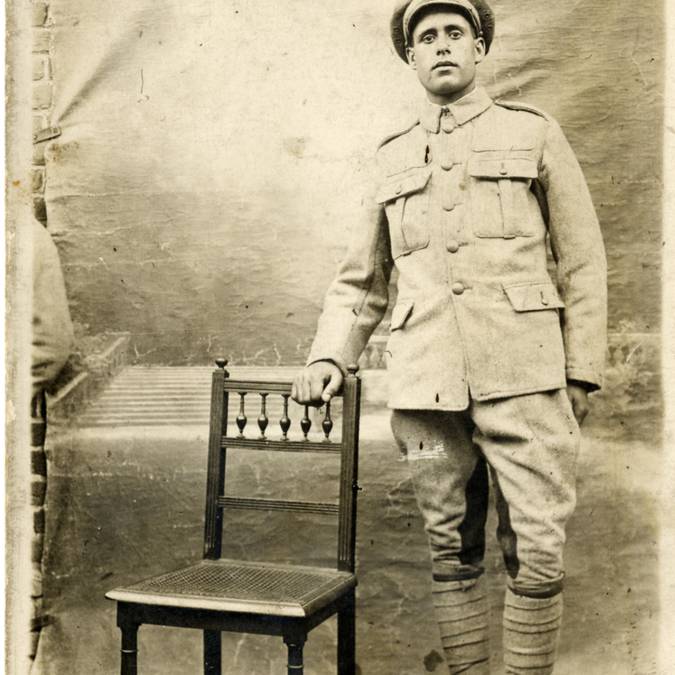On February 19, 1917, João, then 22, a young locksmith from Ponte da Barca, was far from thinking that he was at a turning point in his life. Ponte da Barca was a village in northern Portugal, closer to Spain than Lisbon and watered by the Lima River. About his youth little is known, except that he led an uneventful life with his mother and his brothers. His father was a policeman in Figueiras.
He left the village of his childhood and embarked on February 22 with the other soldiers of the Portuguese Expeditionary Corps (C.E.P.). The training he received at Tancos, some time earlier, enabled him to obtain a Corporal's stripe. When he arrived in Brest on February 26, it was -20 °. It was difficult to camp onsite in such a weather; so the troops embarked in cattle cars and travelled the last 853 kilometres in 20 hours.
Arriving in the vicinity of Aire-sur-la-Lys, he completed his military training in one of the camps of the sector until June 1917. On June 9, he was at La Couture and went to the frontline on the 15th. About this terrible time of his life, he never said anything to his family. Later, his children said that every time he and his trench mates met, they talked about the war but always in Portuguese, a language he refused to teach his children.
Between 1917 and 1918, he was on the frontline on many occasions, in the area of La Ferme du Bois, La Couture and Neuve-Chapelle. He had become a simple soldier, a gunsmith. He had lost his rank following various acts of rebellion that today would be judged insignificant, but at the time were taken very seriously. It must be said that acts of insubordination were frequent in the Portuguese army and were often severely punished by the officers. His act of rebellion? He opposed the difficult marches imposed by the British.
Fortunately, in the midst of turmoil, he had periods of leave. To Portugal? Too far! They were organised behind the front. There, soldiers of all nationalities were hosted on farms, to the very relative happiness of the owners. The soldiers of the C.E.P. were sent to the areas of Pont du Hem, Gorges, Lestrem, Ecquedecques, Mametz. Joao was sent to Ecquedecques and more precisely to the barn on the Beugny farm. Every day, he saw the many children of the family go about their daily tasks. Among them was a 16-year old brunette, Melanie. Was it his big black eyes or his already strong character that attracted her?
At the end of the war, Joao and his comrades had to return home. When he got on the boat, he decided to return to Ecquedecques. Melanie was delighted. Her father, a lot less. No wedding! She was too young! Thus for two years the young man slept in the hallway of the Beugny farmhouse. He worked as a miner. On September 17, 1920 at 7 am, Joao and Melanie were married. They had 15 children.
Joao died in 1975. He was then 84 years old.
Aurore Rouffelaers
Curator of the Exhibition
Source: personal history of the author.
